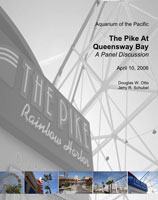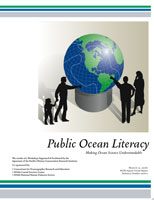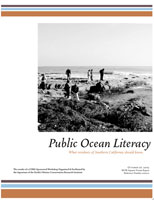MCRI Forums
Forums and Reports

Aquaculture Siting Workshop
On July 16, 2007 the Aquarium of the Pacific organized and facilitated a day and a half workshop that brought together scientists, restaurateurs, participants from the aquaculture industry, and representatives of governmental agencies to explore siting of fish farms in state and federal waters of the Southern California Bight.
Follow the link to read the goals of the workshop.

Priming the Pump
On September 23, 2008, the Aquarium of the Pacific and the Long Beach Water Department convened and facilitated a forum to explore how southern California could make-up for these losses in water supply from the Delta.
The situation is compounded by losses from the Colorado River which supplies an additional 15-17% of the region’s total water use and which has experienced a severe drought for the past eight years. The forum brought together water experts, policy-makers, water managers, and environmentalists. The forum consisted of formal presentations to provide context and to explore options for diversifying southern California’s water supply portfolio, and interactive workshop sessions to review, revise, and refine each of the options. The forum concluded with an opportunity for the entire group to respond to the findings and recommendations for each option and to modify them.
This brief report is a summary of the findings and recommendations. All have the support of most, if not all, of the participants.
Priming the Pump Report (320 KB)

Danger on the Delta
The Aquarium of the Pacific sponsored a half-day conference and workshop to explore the topic, “Danger on the Delta: Is Southern California Betting Its Future on an Unstable Water System?”
The timing was triggered by the publication of the book, “The Edge of Disaster: Rebuilding a Resilient Nation” by Stephen Flynn, that contains a chapter on the Sacramento-San Joaquin Delta entitled “Danger on the Delta”, and on Flynn’s offer to give a public lecture on this chapter, and to participate in the conference.

Wetlands and Watershed Public Education and Outreach
The Aquarium of the Pacific and the Southern California Wetlands Recovery Project hosted a half-day forum for zoos, aquaria, museums, and other educational organizations in the Southern California region to discuss wetland and watershed education and outreach.
Literally millions of people use these Southern California institutions each year, and there is a need to explore how all these organizations might work collaboratively to maximize the effectiveness of important messages about these issues. The forum resulted in stimulating and productive discussions where the participating institutions shared their experiences and ideas on wetland and watershed education outreach.

Ocean Desalination
On October 5, 2006, the Desal Response Group and the Aquarium of the Pacific co-sponsored a one-day conference on ocean desalination that brought together more than 70 experts and activists on issues related to ocean desalination.
The stated goal of the conference was to provide a fresh, balanced perspective of the potential role ocean desalination might play in Southern California’s water portfolio in 2030. While some sessions might not have provided a fully balanced discussion of issues related to ocean desalination in the context of all other sources of fresh water, many important points of agreement and contention did emerge. This brief document is a summary of those points. We have divided them into three categories: major conclusions, points of uncertainty, next steps.

Conference on Ocean Literacy
As part of the national Conference on Ocean Literacy (CoOL), the Aquarium of the Pacific hosted a simultaneous event in Long Beach, California.
The California conference brought together 119 participants representing academia, aquariums, museums, science centers, media, federal and state government officials and staff, industry, non-profit organizations, foundations, and other stakeholders with an interest in environmental literacy. Attendees discussed the essential principles of ocean literacy; suggested strategies for achieving ocean literacy; and outlined the current challenges and opportunities facing the nation and California for educating school children and the general public to make informed and responsible decisions about the ocean and its resources.

Increasing Public Ocean Awareness and Understanding
The average American has little knowledge of ocean and coastal ecosystems and how we humans affect them. And the gap between science and the public is increasing. It is clear that our oceans are in trouble and that any effective efforts to restore and protect them must be rooted in strong support by a well-informed public.
This has been the driving force for placing a much higher priority on public ocean education at the Aquarium of the Pacific. This theme of ocean awareness and literacy will be an integral component of both existing and future exhibits and programs inside and outside the Aquarium. The public’s ocean awareness, literacy, and stewardship must increase if we are to make strides in protecting and conserving our marine resources.

The Pike at Queensway Bay
In 1992, the Disney Corporation decided not to bring the DisneySea theme park and development to the Long Beach urban waterfront. As a result, the City of Long Beach took it upon itself to make a plan to develop its under-utilized downtown shoreline.
The City hired the internationally known architectural firm, Ehrenkrantz & Eckstut, to prepare a master plan. The plan had three components: Rainbow Harbor, the Aquarium of the Pacific, and the Pike at Queensway Bay. With a $40 million loan from the Economic Development Administration of the federal government, Rainbow Harbor was dredged and a wonderful esplanade and docks created. The Board of Directors of the Aquarium of the Pacific sold $120 million in revenue bonds and partnered with Kajima Urban Development to open the Aquarium in 1998. The Pike at Queensway Bay has been the most difficult component to successfully complete.

Public Ocean Literacy II
In the past several years a number of reports about the ocean and its problems and surveys on environmental literacy have pointed out that while people love the ocean, many neither know much about it nor believe that their actions affect its health.
The U.S. Commission on Ocean Policy (USCOP) and the Pew Oceans Commission reports state a need to broaden ocean education and awareness at all levels of society from pre-schoolers to senior citizens so that, whether they live on the coast or in middle America, all will understand the impact the ocean has on them and the impact they have on the ocean. The goal—an “ocean literate” public. Ocean literacy is defined by the National Science Foundation’s Centers for Ocean Sciences Education Excellence (COSEE) and the National Marine Educators Association (NMEA) as “understanding the ocean’s influence on you and your influence on the ocean”. What ocean science does the public need to know and understand and what are the best strategies and methods for turning the science into messages and stories that make it not only memorable and understandable to the audience, but also result in stewardship of the ocean?

Public Ocean Literacy
This report summarizes the results of a workshop held at the Aquarium of the Pacific. The workshop was held in response to the call for greater ocean literacy by the U.S. Commission on Ocean Policy (USCOP) report, the U.S. Ocean Action Plan, and the Pew Oceans Commission report.
In the past several years, a number of reports and research papers have pointed out that while people love the ocean, they neither know much about it, nor believe that their actions affect its health. That is, they are not “ocean literate.” It was also pointed out that there is a need to develop ocean education programs targeted not only at the formal education sector, but also at the general public—from pre-schoolers to senior citizens.

